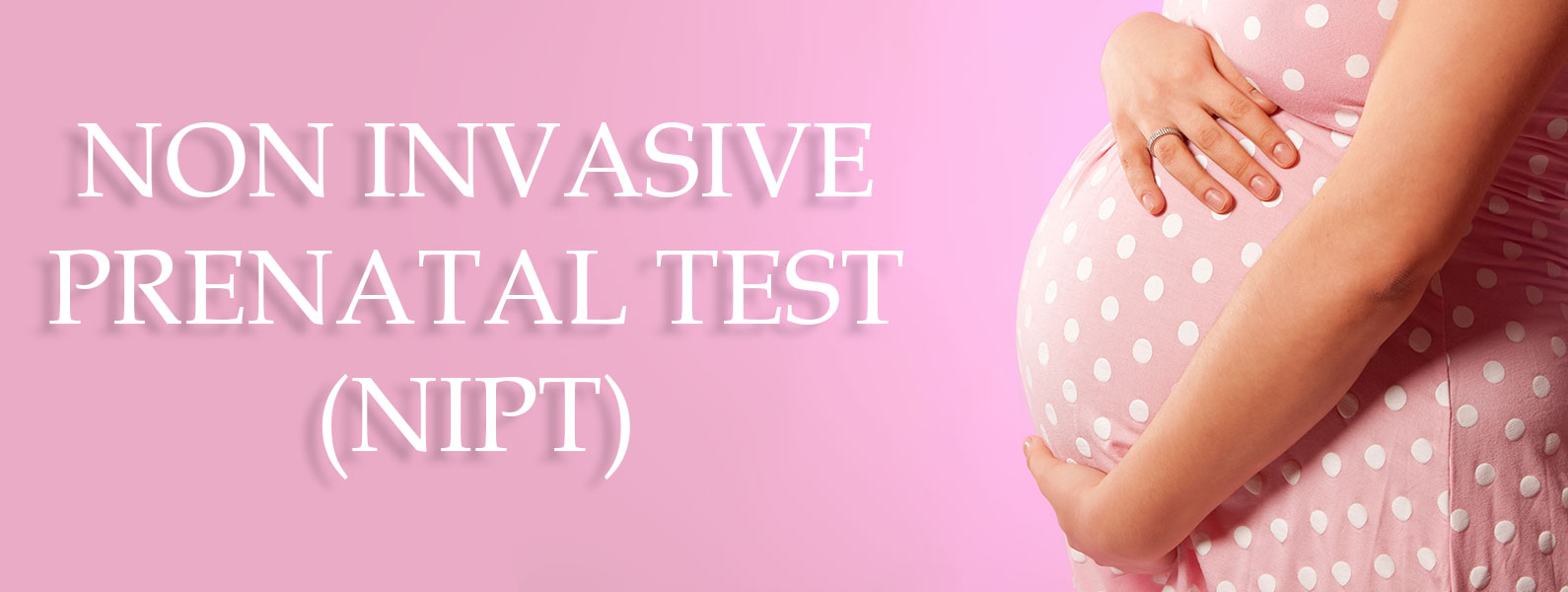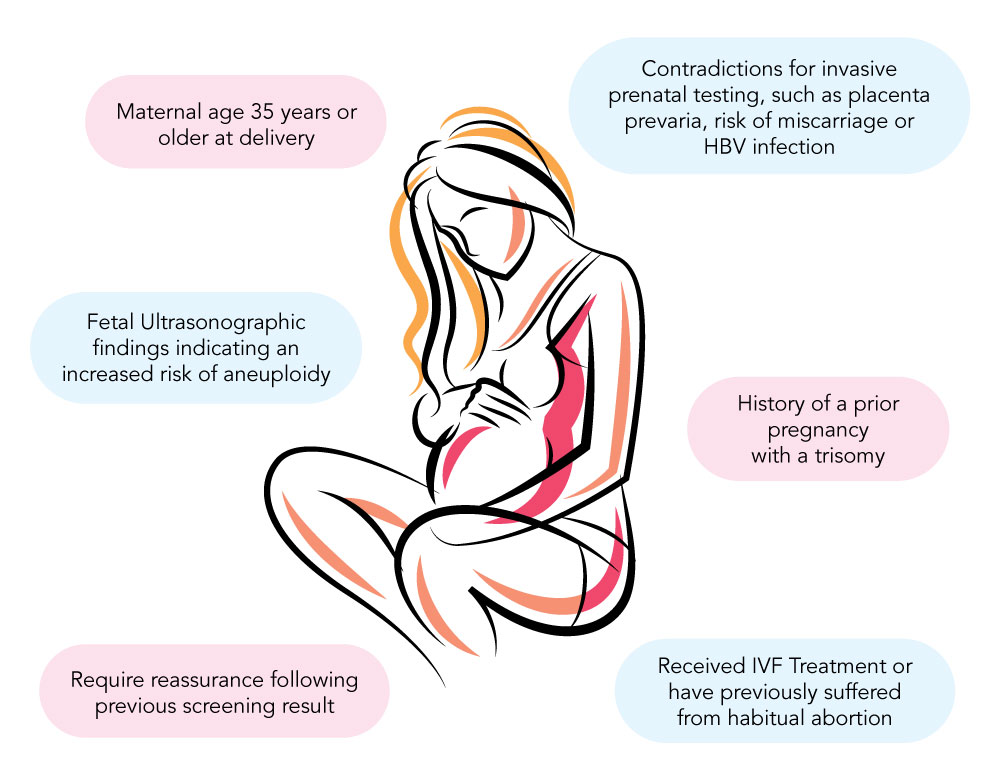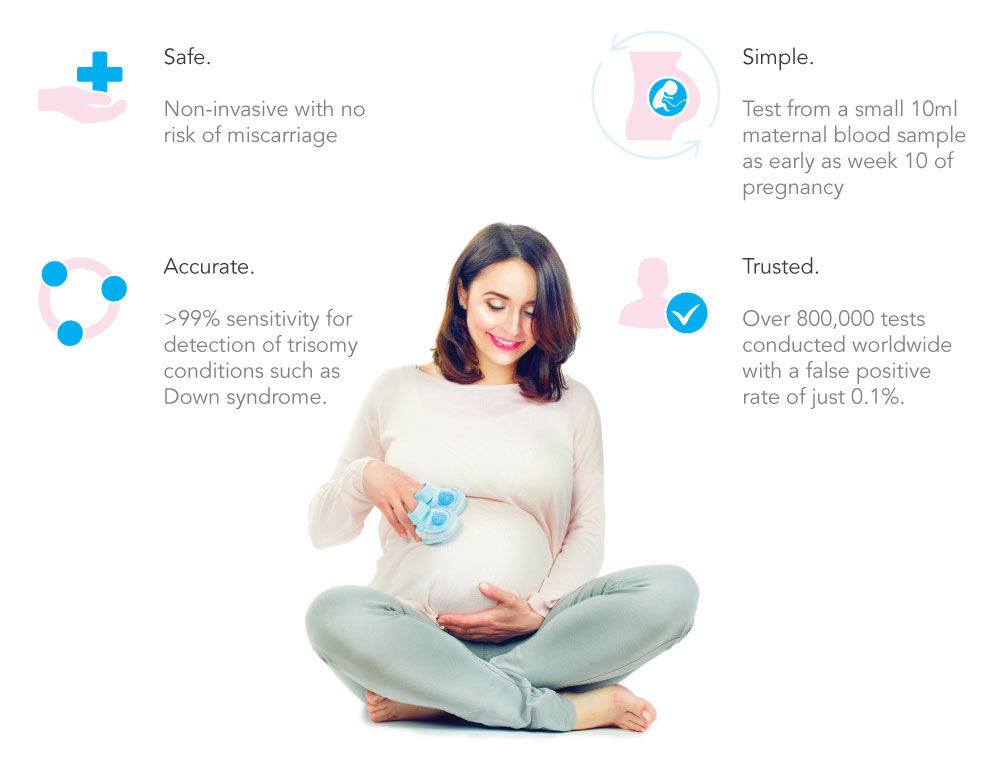
INTRODUCTION TO NIPT
DESCRIPTION:
NIPT is a Non-Invasive Prenatal Test (NIPT) performed on maternal blood to screen pregnancies for the most common fetal chromosome anomalies: Down syndrome (trisomy 21), Edwards syndrome (trisomy 18) and Patau syndrome (trisomy 13).
NIPT is performed on a maternal blood sample which contains DNA from the fetus.
During pregnancy, there are cell-free DNA fragments from both the mother and fetus in maternal circulation, it is possible to analyse the cell-free DNA to detect fetal trisomies such as Down syndrome (trisomy 21).
INDICATIONS:
Though NIPT can be performed in all pregnancies without specific indication, it might also be most appropriate in pregnancies with an increased risk for fetal Down syndrome, trisomy 18, or trisomy 13 based upon a high maternal age (> 40 yrs) or abnormal result of the triple test or first trimester screening Down syndrome.
CONTRA-INDICATIONS:
Limitations in case of multiple pregnancy
NIPT is not advised when there are:
• Fetal anomalies on ultrasound
• Triplets
• Known genetic anomalies that cannot be diagnosed by NIPT
TIMINGS:
Blood can be drawn from gestation week 10
METHOD:
During pregnancy, there are fetal cells and cell-free DNA fragments from the fetus in the maternal circulation. DNA isolated from maternal blood therefore not only contains maternal DNA but also a small amount of fetal DNA: the fetal fraction of cell-free DNA in maternal blood from week 10 on is about 10-15% of all cell-free DNA. It is possible to analyse this cell-free DNA to detect fetal trisomies such as Down syndrome (trisomy 21).
RESULT TURN-AROUND TIME:
Usually one receives the NIPT result through email or you can collect it in person within 10 -15 days after the blood sample.
ADVANTAGES OF NIPT:
NIPT is non-invasive as only maternal peripheral blood is necessary and is therefore a procedure without any risk to the fetus.
FOLLOW-UP:
In case of a normal NIPT result no specific follow up is necessary unless ultrasound examination of the fetus reveals anomalies and further fetal studies might be indicated.
In case of test failure in a limited number of pregnancies (< 1%) not enough fetal DNA can be extracted from the maternal blood, and NIPT cannot be performed. In these pregnancies NIPT can be repeated.
In case of an abnormal NIPT result in case of an abnormal result, the physician will discuss the implications of such chromosomal anomaly with the patient, who can then decide to confirm the NIPT results with chromosome studies.
The NIPT test is suitable if you exhibit any of the following indications:

The Advantages Of The NIPT Test:

